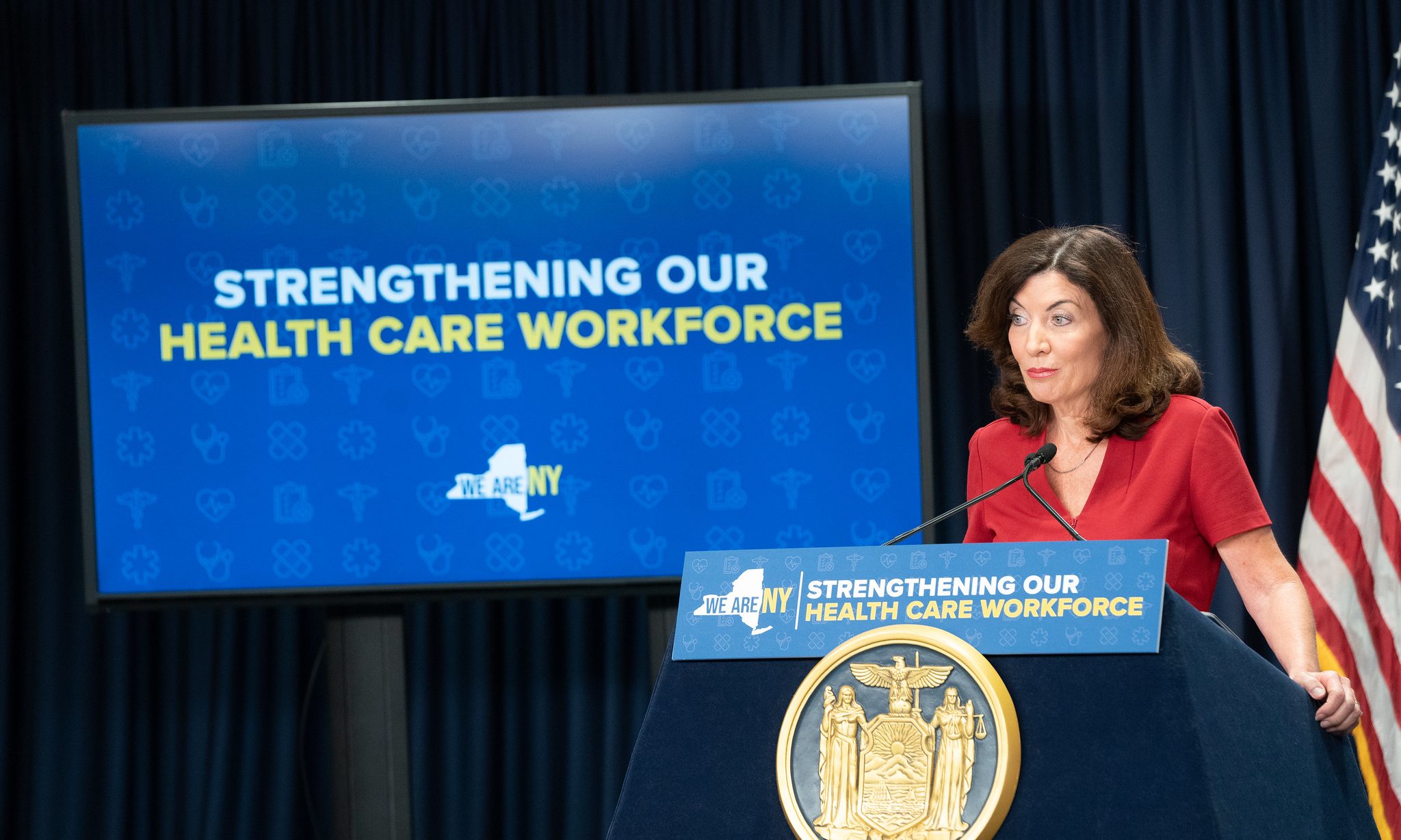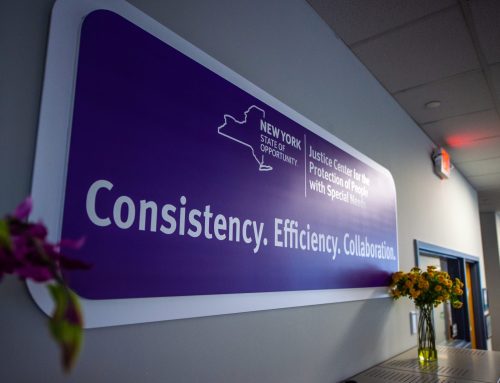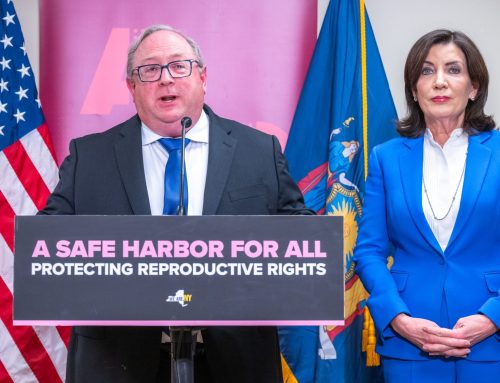Hochul administration not banking on Medicaid tax revenue
New York policymakers are hopeful they’ve found a creative way to get the federal government to pay for more of the state’s Medicaid costs, but the governor’s top budget official says they’re not writing these dollars into the financial plan yet.
“When you see the financial plan – when it comes out – we didn’t necessarily budget the cost into the financial plan, because we need a bird in a hand before we plan on this,” State Budget Director Blake Washington told The Capitol Pressroom this week.
The full conversation, which touches on budget transparency, anti-poverty initiatives, education spending, and much more, is available below.
Governor Kathy Hochul and the Democratic majorities in the state legislature included a new health care tax in the state budget, which is modeled after a California gambit that allowed The Golden State to access billions in additional federal dollars. Washington said the state is hoping to bring in additional revenue from Washington D.C. that would defray some of New York’s Medicaid costs, including increasing reimbursement rates.
“The goal is to have the federal government do a lot more in supporting the state’s Medicaid program,” he said.
Washington believes the earliest the tax could pay dividends is January of 2025, which would be the final quarter of the fiscal year. He declined to estimate what New York could bring in from the initiative, but stressed that state officials would do their best to “maximize” the federal funds.
“There’s no firm commitment that we’re going to get them. So as a result, the governor is not going to put the state financial plan at risk if these funds don’t materialize. Now, we have every expectation that they will, but the financial plan will not include the funds until we actually have them in hand,” Washington said.
As written in the budget, the tax is not limited to the federal government, but Washington expect the commercial insurers to see a “de minimis” increase in their monthly costs. “This has happened other states … and the business burden was negligible,” he said.









Social Media